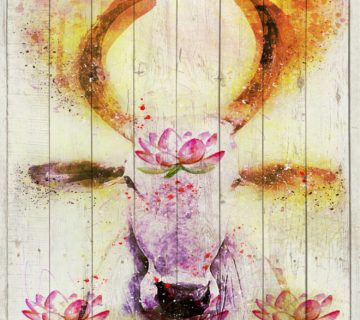A common practise for many of us at this time of the year is to reflect on the year’s past achievements, wins and challenges, and then to set goals and plan for the year ahead.
An unfortunate trend that is seen during this reflection process is that people start off thinking only about their business wins and losses. They become extremely motivated to get stuck in and busily start planning the business goals and setting action plans so they are the first out of the starting blocks when the new year rolls around. They sadly overlook their well being and personal goals and when questioned about them, it is assumed that these goals would just “fit in” with everything else.
So let’s take one step backwards and start off with some reflection. In your own time, answer the following questions and then think about how your answers have affected your life over the past year.
- What were your eating habits like this year?
- What were you sleeping habits like this year?
- What were your alcohol and caffeine habits like this year?
- What were your exercise habits like this year?
- How much time did you spend with your loved ones this year?
- How much time did you spend on your own this year?
If any of your answers were “Could have been better” then start to think of ways you can improve this area of your life. Why? Well if your “could have been better” answers had been better this past year, how would they have positively influenced your life and contributed positively to your business?
These questions are really basic, but these issues always seem to be the first things to be neglected when we get stuck into “work mode”. And the first things we yearn for when we hit the proverbial wall.
The funny thing about change is that it happens whether we like it or not, but if you do nothing, the changes that take place will probably be for the worst, causing dangerous habits to develop. So in order to control the change and to implement good healthy sustainable habits, you need to alter your thinking, attitude, values and behaviour.
The last area I’d like for you to reflect on, is how well did you manage to switch off your “being connected” button this year?
Lately I have been reading Roald Dahl and specifically the Oompa-Loompa’s rhymes and songs, from Dahl’s book, Charlie and the Chocolate Factory. The one poem that truly resonated with me can be read below. When reading it, think of yourself and your smart phones, laptops, iPads and any other device that keeps you connected to the world. So connected, they seem to suck you in, take over your life and turn you into a connection addict. Think about your daily routine and habits that have been formed from the result of viewing these devices and then think of how they are affecting your personal life and business, positively and negatively. How could you manage these for the better? The learning from this poem is not just aimed at children, but at us as well.
The most important thing we’ve learned,
So far as children are concerned,
Is never, NEVER, NEVER let
Them near your television set —
Or better still, just don’t install
The idiotic thing at all.
In almost every house we’ve been,
We’ve watched them gaping at the screen.
They loll and slop and lounge about,
And stare until their eyes pop out.
(Last week in someone’s place we saw
A dozen eyeballs on the floor.)
They sit and stare and stare and sit
Until they’re hypnotised by it,
Until they’re absolutely drunk
With all that shocking ghastly junk.
Oh yes, we know it keeps them still,
They don’t climb out the window sill,
They never fight or kick or punch,
They leave you free to cook the lunch
And wash the dishes in the sink —
But did you ever stop to think,
To wonder just exactly what
This does to your beloved tot?
IT ROTS THE SENSE IN THE HEAD!
IT KILLS IMAGINATION DEAD!
IT CLOGS AND CLUTTERS UP THE MIND!
IT MAKES A CHILD SO DULL AND BLIND
HE CAN NO LONGER UNDERSTAND
A FANTASY, A FAIRYLAND!
HIS BRAIN BECOMES AS SOFT AS CHEESE!
HIS POWERS OF THINKING RUST AND FREEZE!
HE CANNOT THINK — HE ONLY SEES!
‘All right!’ you’ll cry. ‘All right!’ you’ll say,
‘But if we take the set away,
What shall we do to entertain
Our darling children? Please explain!’
We’ll answer this by asking you,
‘What used the darling ones to do?
‘How used they keep themselves contented
Before this monster was invented?’
Have you forgotten? Don’t you know?
We’ll say it very loud and slow:
THEY … USED … TO … READ! They’d READ and READ,
AND READ and READ, and then proceed
To READ some more. Great Scott! Gadzooks!
One half their lives was reading books!
The nursery shelves held books galore!
Books cluttered up the nursery floor!
And in the bedroom, by the bed,
More books were waiting to be read!
Such wondrous, fine, fantastic tales
Of dragons, gypsies, queens, and whales
And treasure isles, and distant shores
Where smugglers rowed with muffled oars,
And pirates wearing purple pants,
And sailing ships and elephants,
And cannibals crouching ’round the pot,
Stirring away at something hot.
(It smells so good, what can it be?
Good gracious, it’s Penelope.)
The younger ones had Beatrix Potter
With Mr. Tod, the dirty rotter,
And Squirrel Nutkin, Pigling Bland,
And Mrs. Tiggy-Winkle and-
Just How The Camel Got His Hump,
And How the Monkey Lost His Rump,
And Mr. Toad, and bless my soul,
There’s Mr. Rat and Mr. Mole-
Oh, books, what books they used to know,
Those children living long ago!
So please, oh please, we beg, we pray,
Go throw your TV set away,
And in its place you can install
A lovely bookshelf on the wall.
Then fill the shelves with lots of books,
Ignoring all the dirty looks,
The screams and yells, the bites and kicks,
And children hitting you with sticks-
Fear not, because we promise you
That, in about a week or two
Of having nothing else to do,
They’ll now begin to feel the need
Of having something to read.
And once they start — oh boy, oh boy!
You watch the slowly growing joy
That fills their hearts. They’ll grow so keen
They’ll wonder what they’d ever seen
In that ridiculous machine,
That nauseating, foul, unclean,
Repulsive television screen!
And later, each and every kid
Will love you more for what you did.
Roald Dahl – Charlie and the Chocolate Factory
- A business strategy is not enough - June 3, 2024
- Networking – quality or quantity? - February 19, 2024
- How behaviour profiling can work for your business - January 5, 2024



